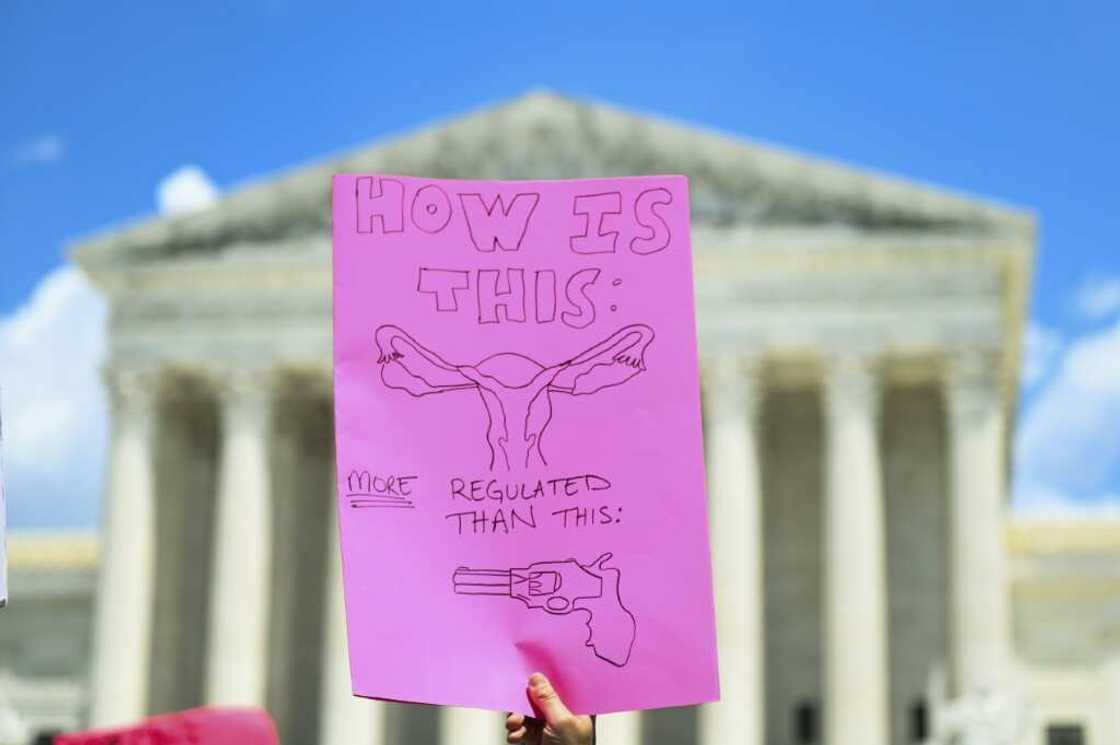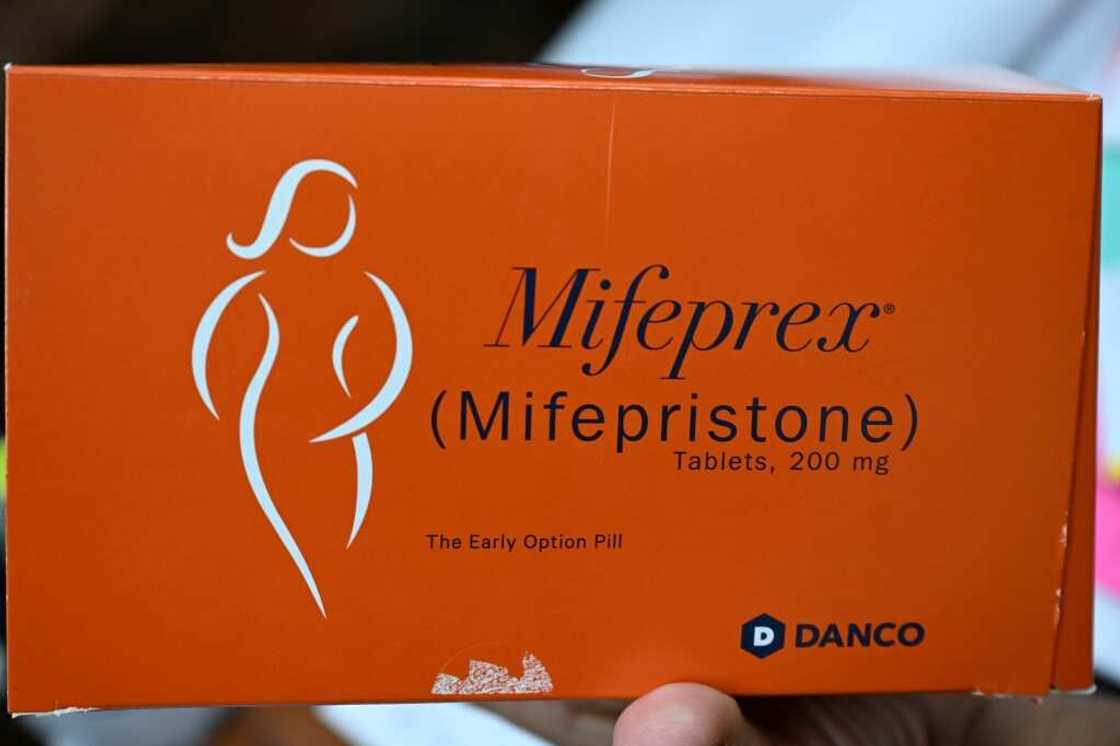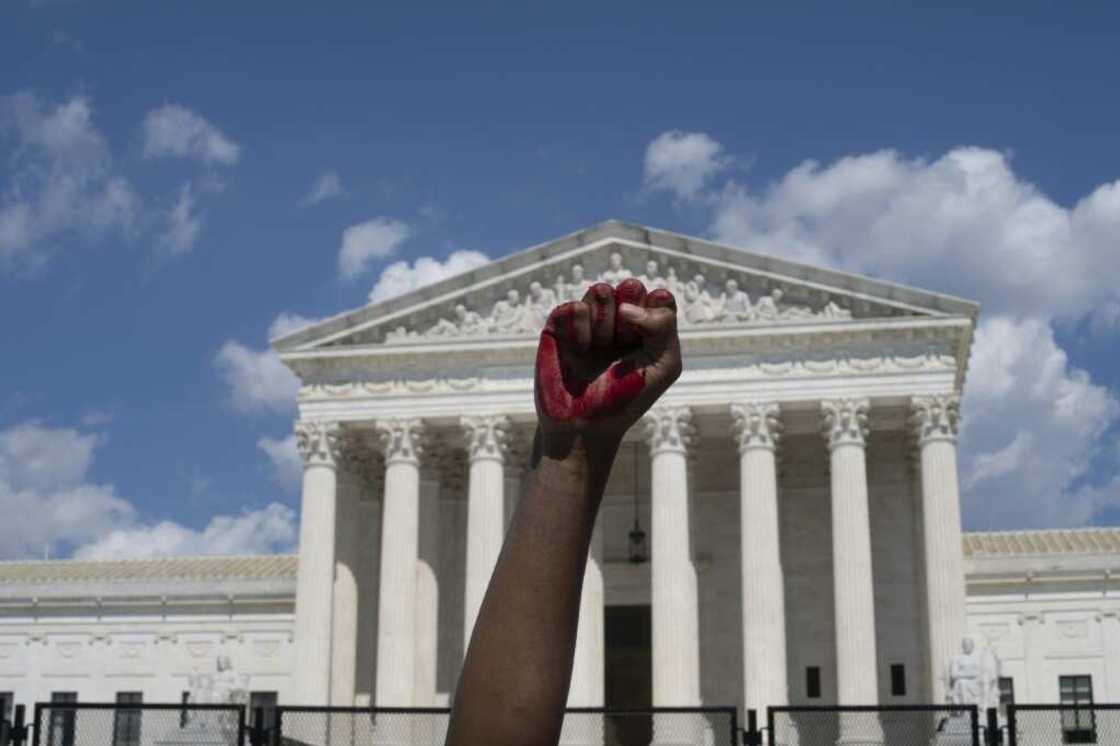Abortion pills to become next battleground in US reproductive fight

Source: AFP
PAY ATTENTION: Click “See First” under the “Following” tab to see Legit.ng News on your Facebook News Feed!
As conservative US states rush to enact abortion bans following the Supreme Court's bombshell decision, the fight over reproductive rights in America is poised to shift to a new battleground: abortion-inducing pills.
With little other means at its disposal, the Biden administration will focus on expanding access to abortion pills for women living in states where the procedure is banned or restricted -- while those states and powerful conservative groups are sure to mount legal challenges to prohibit their use.
Hours after the high court shredded 50 years of constitutional protections for abortion rights on Friday, President Joe Biden ordered health officials to make sure abortion pills were available to American women.
"I will do all in my power to protect a woman's right in states where they will face the consequences of today's decision," he said in televised address to the nation.
The pills, which can be used without significant risk to terminate a pregnancy up to 10 weeks' gestation, already account for half of all abortions carried out in the United States.
Demand is set to soar further after 11 states mostly in the Republican-led conservative South moved to severely restrict or fully ban abortion, with others set to follow suit.
PAY ATTENTION: Share your outstanding story with our editors! Please reach us through info@corp.legit.ng!
Already Saturday, some activists rallying outside the Supreme Court in the US capital Washington held up posters with instructions on where women can get abortion pills, while others chanted "My body, my choice."

Source: AFP
Rebecca Gomperts, a Dutch physician who runs Aid Access, an Austria-based organization that provides abortion pills over the internet, is confident that the situation now faced by American women is not as tragic as it was 50 years ago, before the landmark Roe vs. Wade ruling of 1973 that enshrined abortion rights in America.
"The abortion pills cannot be stopped," Gomperts told AFP in a phone interview. "So there is always access to a safe abortion if a woman has an unwanted pregnancy."
But after Friday's ruling, that may be easier said than done.
A legal grey area
The Food and Drug Administration, America's health regulator, approved the use of abortion pills two decades ago and last year allowed for them to be prescribed via telemedicine and delivered by mail.
But their use in anti-abortion states remains a legal grey area and will likely become a front line in future court battles over reproductive rights.
According to the Guttmacher Institute, a research group that supports access to abortion, 19 US states require that abortion pills be physically administered by a clinician, thus prohibiting their delivery by mail.
And in states that ban all methods of abortion, women may be prohibited from seeking tele-health appointments with out-of-state doctors or foreign clinicians, like Gomperts' group.
In this case, they may have to travel to a state where reproductive tele-health appointments are allowed and get the medication delivered to an out-of-state address.

Source: AFP
But there is another complication.
A medication abortion requires two drugs: first, a dose of mifepristone is taken to block the hormones that support a pregnancy; then, 24 to 48 hours later, misoprostol is taken to induce contractions.
That raises a question: can a woman from an anti-abortion state be prosecuted if she receives the first dose elsewhere, but takes the second dose after returning home?
As liberal states take action to facilitate abortions for women from other parts of the country, there are fears that conservative states may seek to prosecute health workers and advocacy groups involved in those efforts -- and even the patients themselves.
Anticipating such plans, Biden's Attorney General Merrick Garland on Friday warned that states cannot ban abortion pills, authorized by the federal regulator, "based on disagreement with the FDA's expert judgment about its safety and efficacy" since federal law preempts state law.
As these legal battles prepare to play out, anti-abortion advocate Savannah Craven said she and her colleagues will work on getting all methods of abortion, including with pills, banned across the United States.
"I believe in the sanctity and dignity of human life. Life begins in the womb, life begins at conception," she said.
But the argument fell flat with Elizabeth Kellogg and her husband Dan Reitz, who showed up to protest outside the Supreme Court with their eight-month-old daughter Lorelei.
"If it were about life, they'd be worried about the life of the birther, they'd be worried about life after birth," Kellogg told AFP.
"Very little is being done to actually hold up the sanctity of life in the way that it is proclaimed."
Source: AFP






